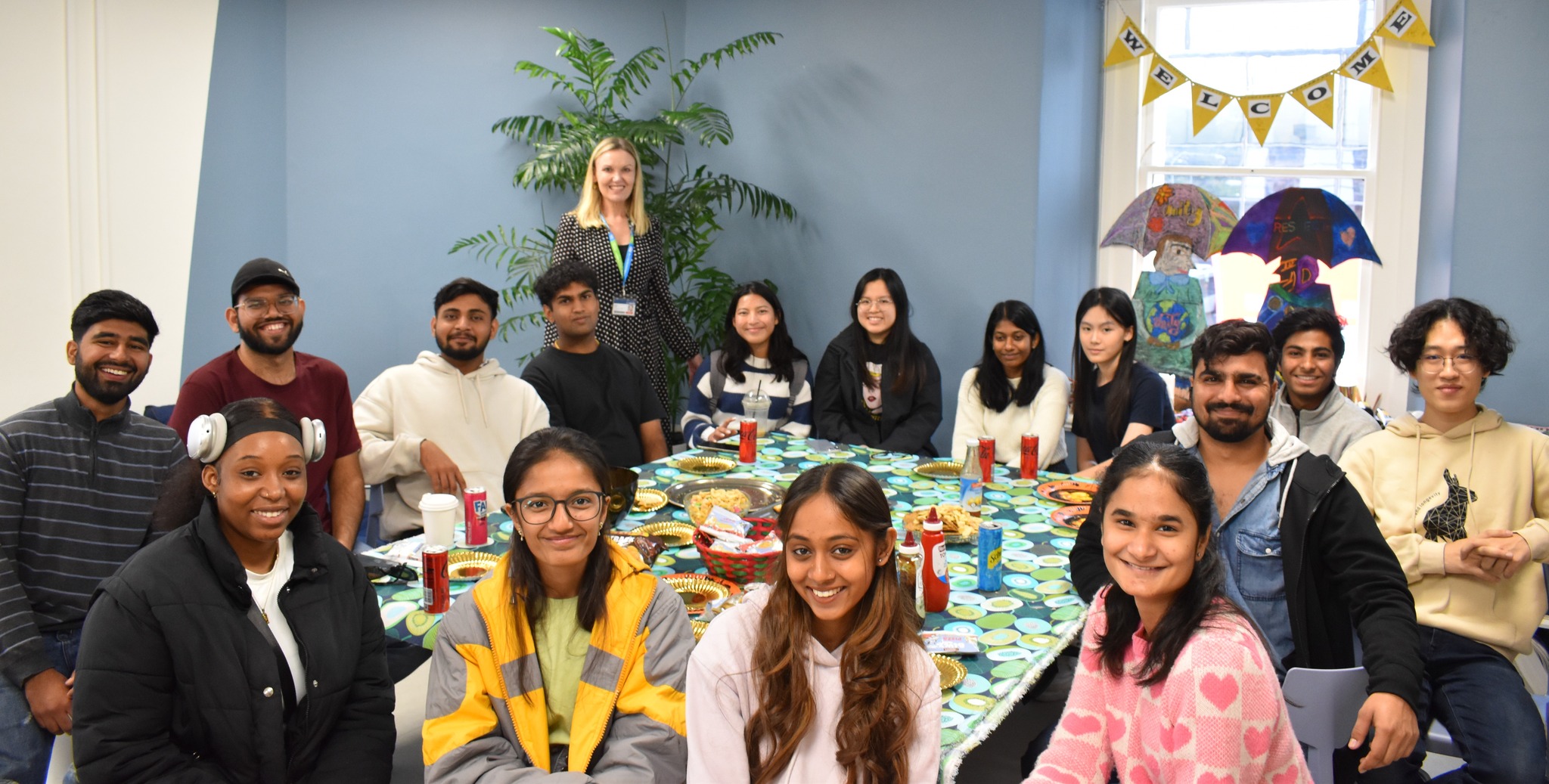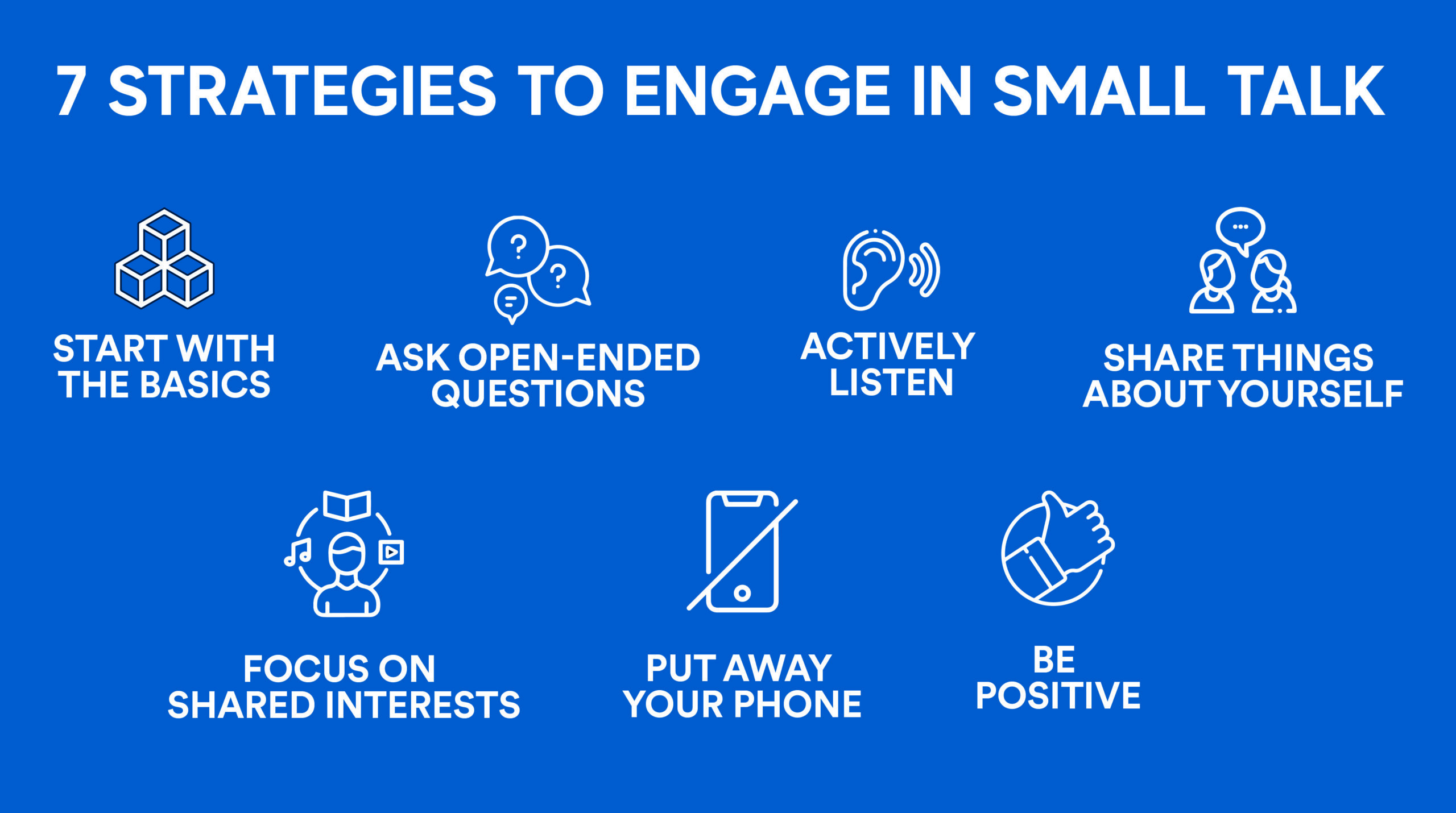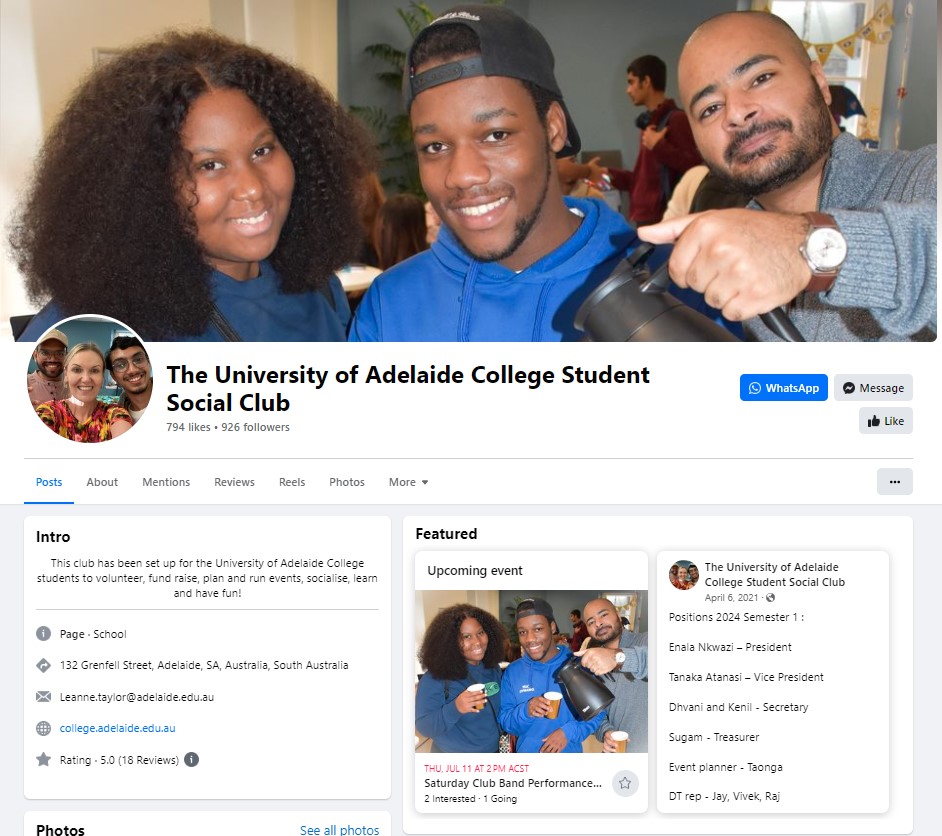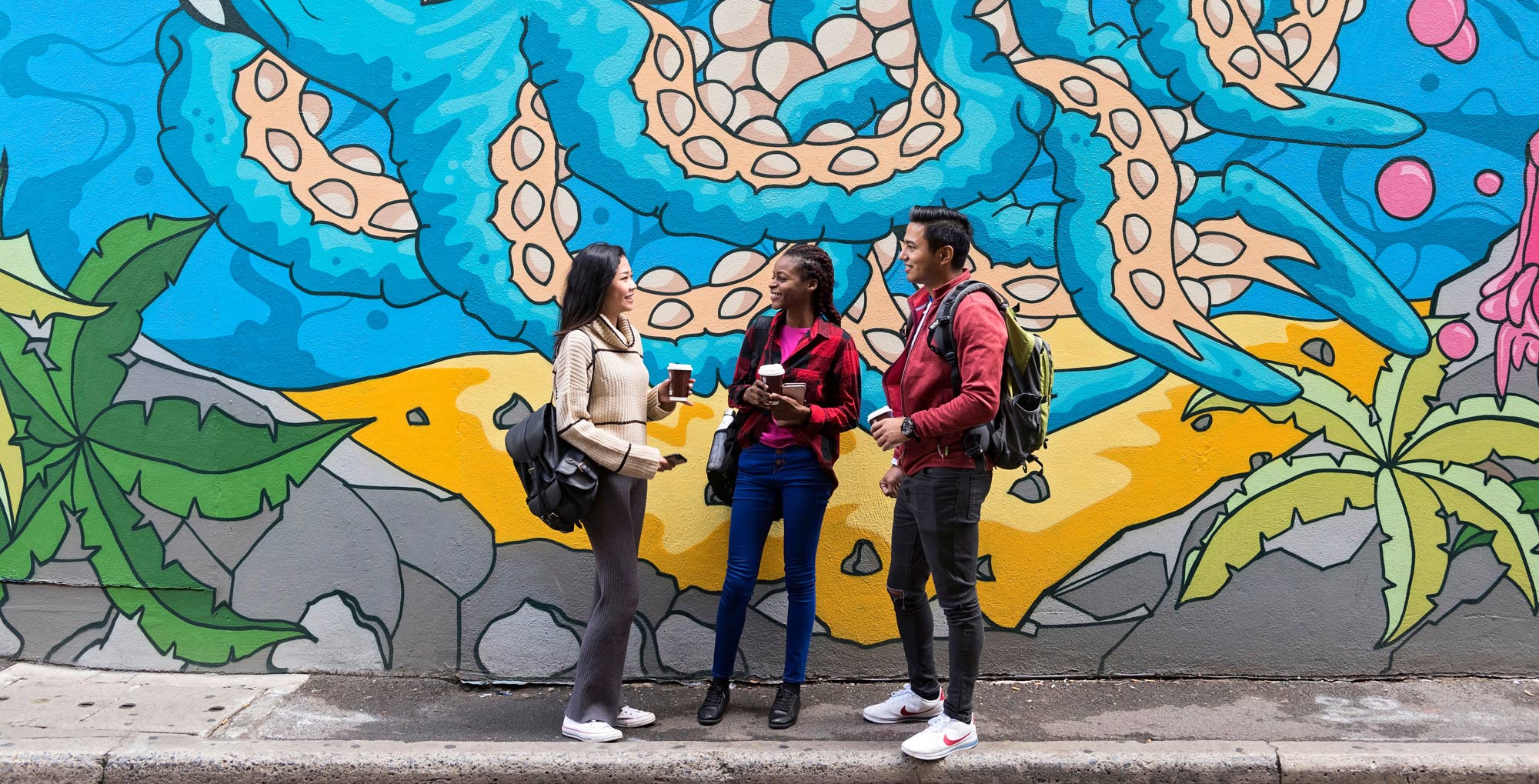
Does the thought of going to an event when you do not know anyone make you anxious? Do you have difficulty starting a conversation?
Speaking in social situations does not come easily for everyone. If you are about to start studying at university, you may be feeling nervous leaving your family and friends and going to a new place where there are hundreds of new students from different backgrounds to get to know.
In this blog we will discuss:

What is small talk?
Small talk is a light, casual conversation with someone you do not know very well. The goal is to slowly build rapport with them and get to know them better. These conversations can happen anytime during your studies. The more you practice, the better you will get at talking to new people.
7 strategies to engage in small talk

1. Start with the basics
When you enter a room, you may find it easier to approach someone who is standing by themselves and not in a group. The first few seconds of meeting someone is about ‘breaking the ice’, so start with basic questions that everyone can easily answer such as:
- Hi, I’m [first name]. What’s yours?
- What are you studying?
- I’m from [country]. Where are you from?
2. Ask open-ended questions
You are trying to get to know the person better, so ask open-ended questions (i.e. questions that can’t just be answered by a ‘yes’ or ‘no’). You could ask:
- What are your favourite foods?
- What are your favourite sports?
- What shows are you currently streaming?
- Which countries have you travelled to? What did you do there?
Open-ended questions lead to a wider range of answers. Let’s use one of the questions from the above list.
Say you ask a person, ‘What are your favourite foods?’, they may respond with ‘I love Chinese food.’
Their answer gives you an opening to ask further question such as ‘Which type of Chinese food do you like?’, ‘Which Chinese dishes are your favourite?’ or ‘Which restaurants do you recommend for excellent Chinese food?’ As you can see, open-ended questions can carry conversations better than close-ended ones.
One thing to remember is when you meet a person for the first time, avoid sensitive topics such as politics, their physical appearance, age or childhood challenges. Small talk is about ‘light-hearted’ topics not deep, personal ones.
3. Actively listen
Actively listening means being present, attentive and listening closely to what the other person is saying. Your body language is important too. Maintain eye contact, nod and smile. Active listening communicates engagement and interest.
4. Put away your phone
When you’re looking at your phone, it deters people from approaching you. You are sending them a message that you’re not interested in talking with anyone and just want to be left alone.
Putting your phone away shows that you are open to talk to others or attentive to the person who’s talking to you.
5. Share things about yourself
Small talk is not one-sided. The other person is trying to get to know you too. Try to share some personal details that you’re comfortable with such as likes, dislikes or opinions about something you’ve experienced. This may encourage the other person to share a little more too.
6. Focus on shared interests
After asking someone a few open-ended questions, you may find that you share common interests. Focus on these interests as the conversation will flow easier and help to set a foundation for a stronger friendship.
7. Be positive
If you go in with the right attitude, you’ll have fun and meet some interesting people. View each conversation as an opportunity to get to know someone better and form a friendship. You never know who you’re going to meet so go into a conversation with a positive mindset.
Some small talk topics
Here is a list of topics and questions that you can use in your conversation.
1. Local area
If you’re an international student, you can talk about settling into a new city and places you’ve been to so far.
For example:
- When did you arrive in [city name]?
- What do you like about [city name] so far?
- Which interesting places have you been to?
2. Food
Food is always an enjoyable topic to talk about. You can ask for suggestions for cafes or restaurants to eat at. If the person doesn’t eat out alot, you can talk about your favourite food or what you like to cook at home.
For example:
- Which restaurant serves the best [food name]? Why?
- What are your favourite foods or dishes?
- What’s your favourite dish to cook at home?
- What foods do you dislike?
3. Entertainment
You can talk about movies, books, music etc. Ask for recommendations.
For example:
- What’s the last movie you saw at the cinemas? What did you think of it?
- Which books have you read recently?
- Which are your favourite music artists?
- Can you recommend any good podcasts to listen to?
4. Travel
Talk about different places you’ve been to around the world. If the person has not travelled internationally, ask them about places in their home country.
For example:
- Where was the last country you travelled to? What did you do there?
- Which are your favourite places to visit in your [country name]?
- Which country would you next like to travel to?
5. Hobbies
People love talking about things they enjoy doing. You can connect with people on a deeper level if you’re interested in learning about their hobbies.
For example:
- What do you like to do in your free time?
- What would you like to learn how to do?
6. Study and Work
You could ask people about their studies or what career they would like to get into.
For example:
- Why did you choose to study [field]?
- What roles are you looking for after you graduate?
- Which companies would you like to work for?
- What’s your dream job?

How to get better at small talk
Engaging in small talk is a skill. The more you practise, the better you’ll get at it. You’ll eventually learn which topics people enjoy talking about, what questions to ask, and how to read people’s body language.
Here are 3 ways to help you get better at small talk:
1. Look for opportunities
Start with smaller gatherings such as one of your classes or a student club. At the University of Adelaide College, the Social Club is run by students for students. The Social Club organises different events during the year such as Multicultural celebrations, excursions as well as volunteering opportunities in the local community. Here, you can talk with other international students who are going through the same things you are.

Once you feel more comfortable in smaller gatherings, you could join larger student associations or campus events to meet new people.
2. Set a goal
Having a goal can make each interaction more meaningful. You could commit to meeting three new people at a newcomer’s welcome party or catch up for coffee with the student you met at orientation last week.
3. Ask for help
You can view online resources, ask the College Services team or get advice from a friend or family member who is confident in meeting new people and starting conversations with them. You could ask them to come with you to your next gathering and observe how they engage in small talk.
A final tip
If you say something wrong, or the conversation did not go as planned, it’s okay. Small talk is not about speaking perfectly, it’s about connecting with someone. Continue to go into each conversation with a positive attitude, use the different strategies listed above and your confidence will grow with each interaction.
At the University of Adelaide College, we want to make sure that you have the right support to make the most of your study experience with us. Our College Services Team are here to help you settle into the College and offer you any academic or career guidance you may need.

